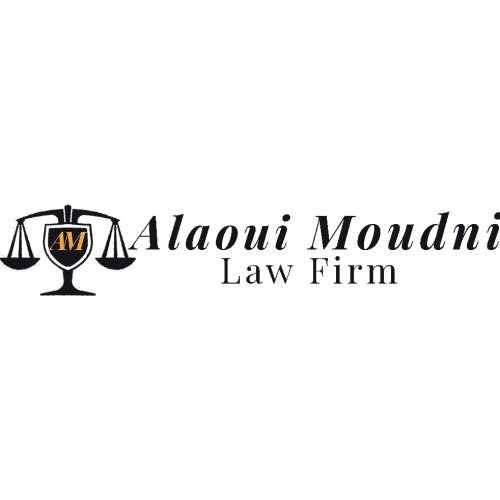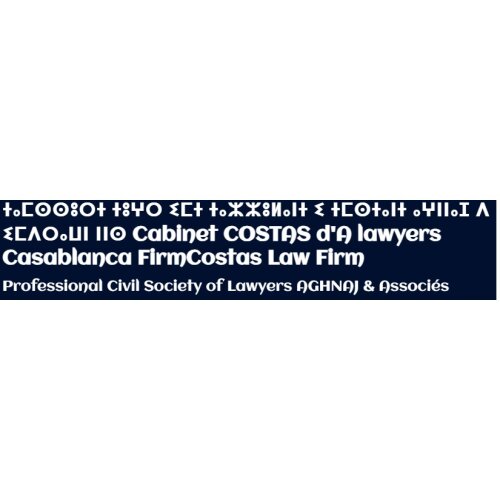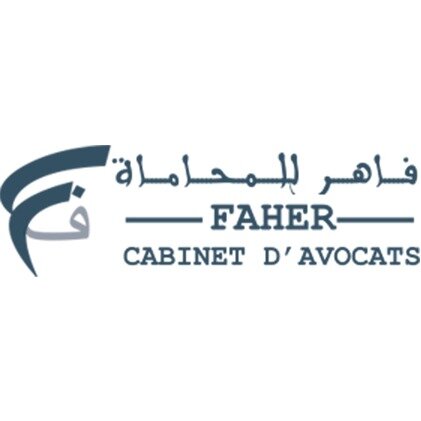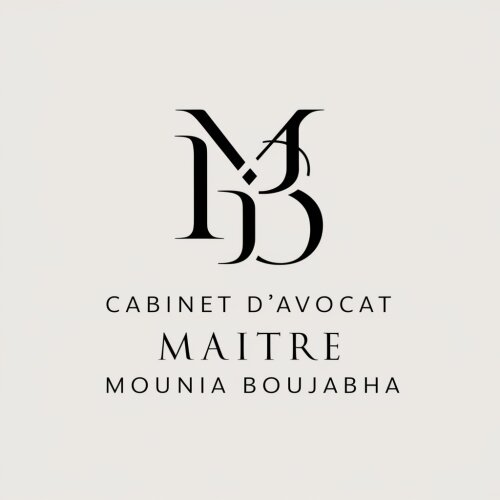Best Discrimination Lawyers in Casablanca
Share your needs with us, get contacted by law firms.
Free. Takes 2 min.
List of the best lawyers in Casablanca, Morocco
About Discrimination Law in Casablanca, Morocco
Discrimination refers to the unfair treatment or prejudice against individuals or groups based on certain characteristics, such as race, religion, gender, disability, or sexual orientation. In Casablanca, Morocco, there are laws in place to prohibit and address discrimination in various contexts, including employment, housing, education, and public services.
Why You May Need a Lawyer
There are several situations where you may require legal help in discrimination cases. These can include:
- Being subjected to discriminatory treatment in the workplace, such as unequal pay, denial of promotions, or unjust termination
- Facing discrimination when seeking housing, including being refused accommodation or experiencing unfair rental conditions
- Encountering discrimination while accessing public services, such as healthcare, education, or transportation
- Experiencing discrimination based on your religious beliefs, gender identity, sexual orientation, or other protected characteristics
Local Laws Overview
The following are key aspects of local laws in Casablanca, Morocco that are particularly relevant to discrimination:
- The Moroccan Constitution guarantees the principle of equality among all citizens and prohibits any form of discrimination.
- The Framework Law on Equality prohibits discrimination based on race, color, sex, religion, disability, social condition, or any other personal characteristic. It covers both public and private sectors.
- The Labor Code includes provisions to prevent discrimination in employment, including hiring, promotion, and termination of employees.
- The Law on the Personal Status provides protections against gender-based discrimination, particularly in matters related to marriage, divorce, and inheritance.
Frequently Asked Questions
Q1: How can I prove that I have been a victim of discrimination?
A1: To prove discrimination, it is helpful to gather evidence such as emails, documents, witness testimonies, or any other relevant information that supports your claim. Consulting with a lawyer experienced in discrimination cases can help in building a strong case.
Q2: What should I do if I'm facing discrimination at work?
A2: If you are experiencing discrimination in the workplace, you should first document the incidents and try to resolve the issue internally by reporting it to your employer or HR department. If the situation remains unresolved, you can consult with a discrimination lawyer who can guide you on how to file a formal complaint or take further legal action.
Q3: Is there a time limit for filing a discrimination complaint?
A3: Yes, there is a statute of limitations for filing discrimination complaints. The timeframe may vary depending on the nature of the discrimination and the specific legal provisions that apply. It is advisable to consult with a lawyer promptly to ensure you meet the necessary deadlines.
Q4: Can I file a discrimination complaint anonymously?
A4: It is generally recommended to provide your identity when filing a discrimination complaint. However, specific circumstances may allow for anonymous complaints, particularly if there are concerns about personal safety or potential retaliation. Consult with a lawyer who can advise you on the best course of action.
Q5: What remedies are available for discrimination victims in Casablanca?
A5: If you are successful in proving your discrimination claim, you may be entitled to various remedies such as monetary compensation, job reinstatement, promotion, or changes in policies and practices to prevent further discrimination. The specific remedies will depend on the nature and impact of the discrimination.
Additional Resources
For additional information and assistance, you may find the following resources, governmental bodies, or organizations helpful:
- The Ministry of Justice and Liberties in Morocco provides information on legal rights and resources related to discrimination.
- The Moroccan National Human Rights Council (CNDH) offers guidance and support in cases of discrimination.
- Local human rights organizations such as the Moroccan Association for Human Rights (AMDH) or the Moroccan Association of Women's Rights (AMDF) may provide legal advice and advocacy services.
Next Steps
If you believe you have been a victim of discrimination in Casablanca, Morocco, it is important to take the following steps:
- Gather evidence to support your claim, including any documentation or witness testimonies.
- Contact a lawyer specializing in discrimination law to discuss your case and understand your legal rights.
- Follow the lawyer's advice and guidance in initiating a formal complaint or pursuing legal action.
- Collaborate with your lawyer to compile all necessary documentation or evidence.
- Attend meetings, hearings, or court proceedings as required and maintain open communication with your lawyer throughout the process.
Lawzana helps you find the best lawyers and law firms in Casablanca through a curated and pre-screened list of qualified legal professionals. Our platform offers rankings and detailed profiles of attorneys and law firms, allowing you to compare based on practice areas, including Discrimination, experience, and client feedback.
Each profile includes a description of the firm's areas of practice, client reviews, team members and partners, year of establishment, spoken languages, office locations, contact information, social media presence, and any published articles or resources. Most firms on our platform speak English and are experienced in both local and international legal matters.
Get a quote from top-rated law firms in Casablanca, Morocco — quickly, securely, and without unnecessary hassle.
Disclaimer:
The information provided on this page is for general informational purposes only and does not constitute legal advice. While we strive to ensure the accuracy and relevance of the content, legal information may change over time, and interpretations of the law can vary. You should always consult with a qualified legal professional for advice specific to your situation.
We disclaim all liability for actions taken or not taken based on the content of this page. If you believe any information is incorrect or outdated, please contact us, and we will review and update it where appropriate.











